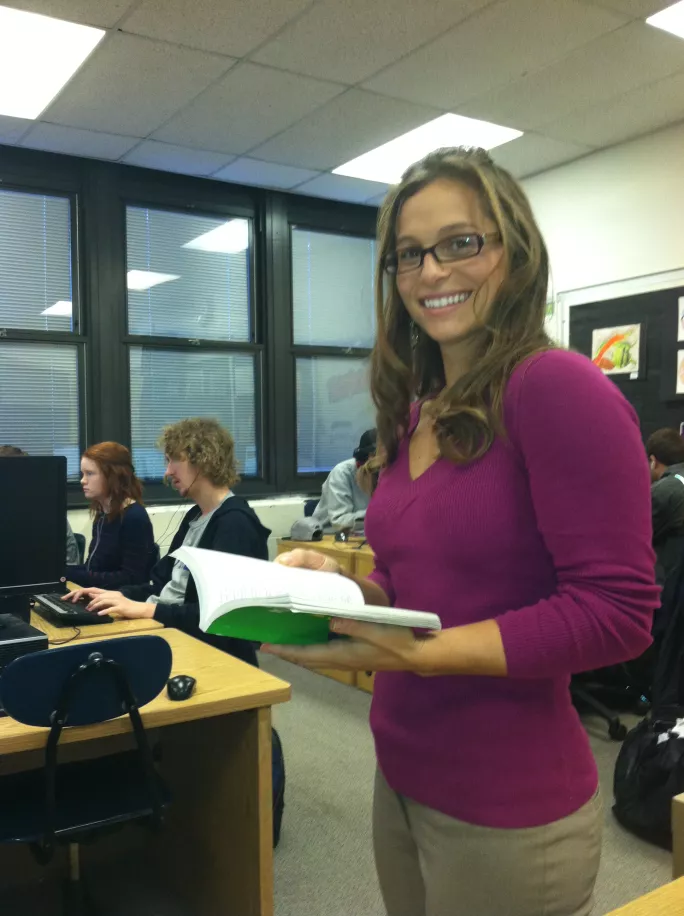I’m an English teacher at an affluent high school in New Jersey (the picture above is of my classroom), so I primarily teach reading and writing skills to students aged 15-18. I’m fortunate enough to live in the north-east of the country, which, similar to the West Coast, is an area that is rather progressive in education. Despite this, we still struggle with adapting our ancient schooling system to the 21st century.
I recently conducted research into the diversity of the texts we teach in our American literature course at high-school level. I found that the majority of the texts feature predominately white, male protagonists and were written before the mid-20th century. Yes, we are still teaching the same texts that our students’ parents, and potentially grandparents, studied.
It’s an issue increasingly debated in US schools and in the US media. Two popular hashtags have emerged for the issue: #WeNeedDiverseTexts and #ColorMyShelf. A recent New York Times article, meanwhile, called the lack of diversity in young adult books an “apartheid of literature”.
As teachers, we are asking ourselves whether we are content with the fact that although American literature features women and men from all classes, races, sexual orientations and ethnicities living in this country, the classics we teach do not represent this diversity at all.
The answer to that - for most young teachers, at least - is no. But we are far too overworked, underpaid, stressed and fearful of losing our jobs to make any real waves. We are currently in the process of updating our curriculum for our global literature course. This used to be a process that paid teachers over the summer or on their time off, allowing them to devote serious care and attention while being sufficiently compensated. Owing to budget cuts, the process of curriculum writing is done during the school day, usually on a teacher’s lunch or prep period. Significant change cannot come about this way.
And, as a profession, we are far from diverse enough ourselves. The US Department of Education issued a report recently stating that “14 percent of teachers identify as African-American or Hispanic, compared to 38 percent of students. Only 2 percent of teachers are African-American men and only 2 percent are Latino men.”
We need to address diversity in all aspects of schooling - in the make-up of the teaching profession and in the content we teach. If we don’t, we will remain stuck in time.
Rebecca, pictured below, will be writing again in four weeks’ time. Next Monday, a teacher from Australia will be giving us the lowdown on the current teaching debates there.





